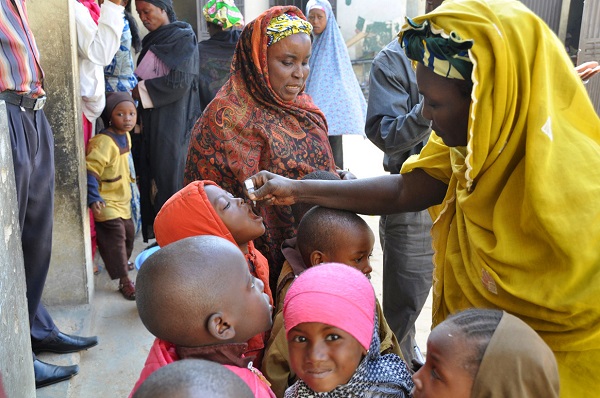
In a significant stride towards polio eradication, the National Primary Health Care Development Agency (NPHCDA) has confirmed a remarkable 60 per cent reduction in circulating variant poliovirus type 2 (cVPV2) cases compared to 2023.
This achievement is part of a more than 95 per cent reduction observed since the peak of the outbreak in 2021 within Nigeria.
The announcement came during the 40th Expert Review Committee (ERC) meeting on polio and routine immunisation, where the executive director of NPHCDA, Dr. Faisal Shuaib, shared this encouraging progress.
Shuaib acknowledged the severe impact of the circulating variant of poliovirus type 2 (cVPV2) in the past year, which saw over 1000 cases reported. He attributed the reduction in cases to the relentless efforts of frontline health workers and the expert interventions of the ERC members.
Despite these significant strides, Shuaib emphasised that one child paralysed by cVPV2 is still one child too many. He made it clear that polio cannot be declared eradicated until there are no more cases of cVPV2.
Shuaib also took a moment to pay tribute to the sacrifices of health workers and requested a moment of silence to honour those who lost their lives while working to combat polio.
He expressed profound gratitude for the dedication and resilience of frontline workers, especially those in insecure areas, who have tirelessly administered polio vaccine drops to children.
While acknowledging the progress, Shuaib stressed that true celebration could only occur when every child is protected from paralysis and has access to vaccines to prevent other diseases. He highlighted that the polio programme would provide evidence of progress in eradicating all forms of polio in the country, along with updates on routine immunisation and the rollout of the HPV vaccine to safeguard the lives of young girls.
Shuaib expressed optimism that the 40th ERC meeting would be a momentous occasion, signifying the final push to eliminate all forms of polio from the country. He hoped that this would be the last time the ERC would gather to draft a year-long work plan, demonstrating confidence in the imminent elimination of polio in the country.
He reiterated the importance of parental responsibility in vaccinating children to prevent diseases, citing a diphtheria outbreak as a stark example of the consequences of non-compliance. Shuaib also called on state governments to invest in primary healthcare, highlighting its pivotal role in establishing a robust healthcare system that contributes to socioeconomic development.
Chairing the Expert Review Committee (ERC) meeting on polio and routine immunisation, Prof. Akin Osibogun stressed the need to maintain pressure to prevent any resurgence of the disease. He discussed achievements and pending recommendations, underlining the significance of boosting the immune system to combat environmental and zoonotic diseases.
Osibogun emphasised the importance of strong policies in addressing emerging diseases within the country. He called for a one-health approach and urged all stakeholders to adhere to international health regulations while remaining dedicated to the nation’s health security.
Representing the UNICEF country representative in Nigeria, Dr. Edwardo Celades, acknowledged the 60 per cent reduction in polio cases and the integration efforts in primary healthcare within the country. Celades underscored the urgency of addressing the diphtheria outbreak in some parts of Nigeria and congratulated the government for vaccinating nearly a hundred thousand children as part of its intensified efforts to vaccinate children under five nationwide.
Speaking on behalf of the WHO, Dr. Walter Mulombo revealed that the health organization has deployed over three thousand surge staff to respond to the current epidemiology, resulting in an average increase of about 20v per cent in Sokoto, Zamfara, Kebbi and Zamfara states. He emphasised the need to reach and sustain zero cases of cVPV2 in Nigeria in 2023 and stressed the importance of addressing the residual risk in northwest states while maintaining resilience, especially in the southern zones.
Nigeria was declared wild poliovirus-free in 2020, marking a significant milestone in the fight against polio. However, the circulating variant polio virus 2 (cVPV2) strain transmission has persisted, with 168 cases reported in 2022 alone. The latest reduction in cVPV2 cases represents a substantial step towards finally eradicating this disease from the country.

